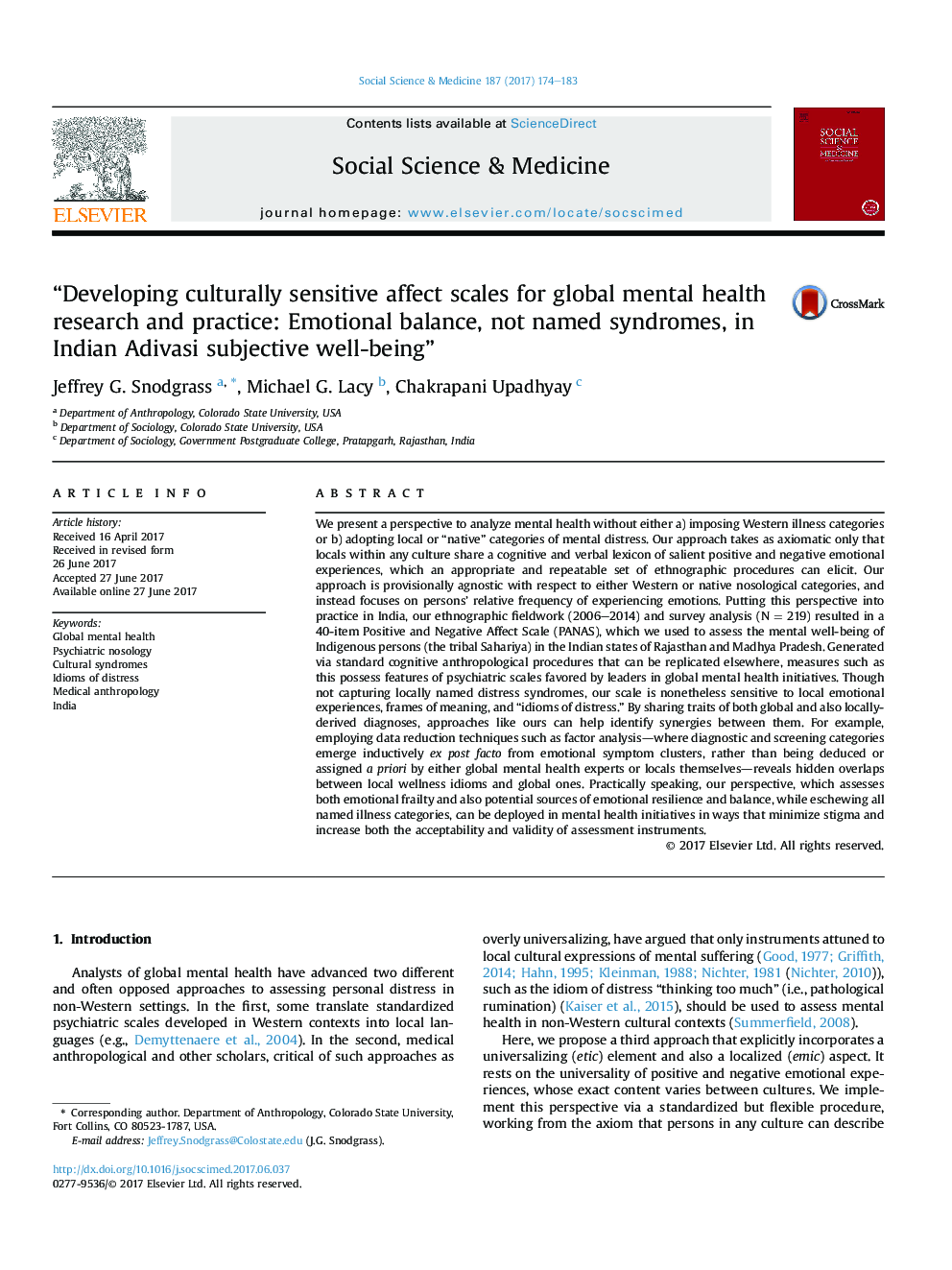| کد مقاله | کد نشریه | سال انتشار | مقاله انگلیسی | نسخه تمام متن |
|---|---|---|---|---|
| 5046473 | 1475982 | 2017 | 10 صفحه PDF | دانلود رایگان |

- Presents a novel way to assess mental health and subjective well-being in non-Western contexts.
- The proposed approach avoids both Western and local diagnostic categories.
- A specific emotion scale is presented as a template for application to other cultural contexts.
- The approach has potential utility in cross-culturally comparative mental health research.
- The proposed emotion scales could reduce stigma associated with psychiatric diagnoses.
We present a perspective to analyze mental health without either a) imposing Western illness categories or b) adopting local or “native” categories of mental distress. Our approach takes as axiomatic only that locals within any culture share a cognitive and verbal lexicon of salient positive and negative emotional experiences, which an appropriate and repeatable set of ethnographic procedures can elicit. Our approach is provisionally agnostic with respect to either Western or native nosological categories, and instead focuses on persons' relative frequency of experiencing emotions. Putting this perspective into practice in India, our ethnographic fieldwork (2006-2014) and survey analysis (NÂ =Â 219) resulted in a 40-item Positive and Negative Affect Scale (PANAS), which we used to assess the mental well-being of Indigenous persons (the tribal Sahariya) in the Indian states of Rajasthan and Madhya Pradesh. Generated via standard cognitive anthropological procedures that can be replicated elsewhere, measures such as this possess features of psychiatric scales favored by leaders in global mental health initiatives. Though not capturing locally named distress syndromes, our scale is nonetheless sensitive to local emotional experiences, frames of meaning, and “idioms of distress.” By sharing traits of both global and also locally-derived diagnoses, approaches like ours can help identify synergies between them. For example, employing data reduction techniques such as factor analysis-where diagnostic and screening categories emerge inductively ex post facto from emotional symptom clusters, rather than being deduced or assigned a priori by either global mental health experts or locals themselves-reveals hidden overlaps between local wellness idioms and global ones. Practically speaking, our perspective, which assesses both emotional frailty and also potential sources of emotional resilience and balance, while eschewing all named illness categories, can be deployed in mental health initiatives in ways that minimize stigma and increase both the acceptability and validity of assessment instruments.
Journal: Social Science & Medicine - Volume 187, August 2017, Pages 174-183